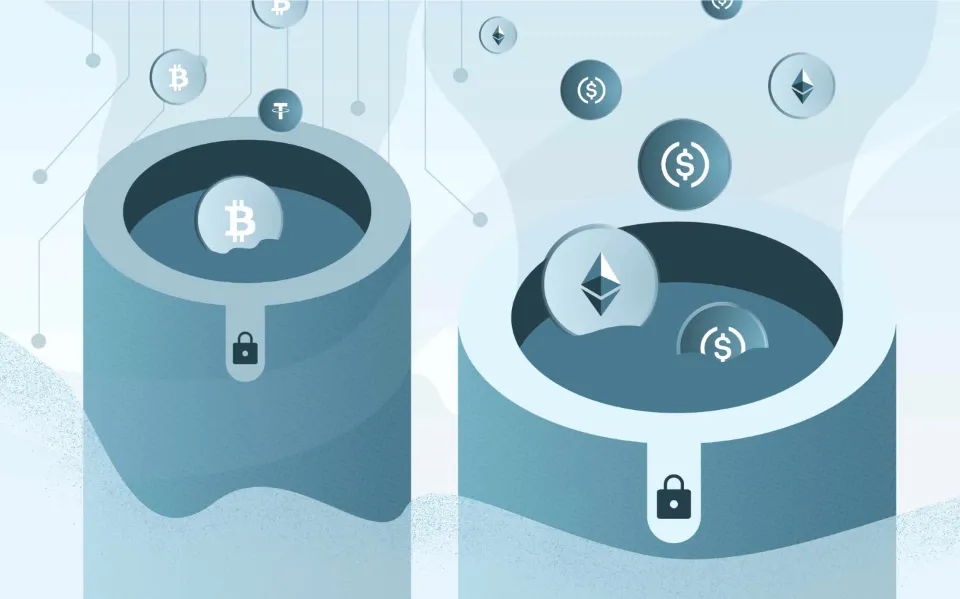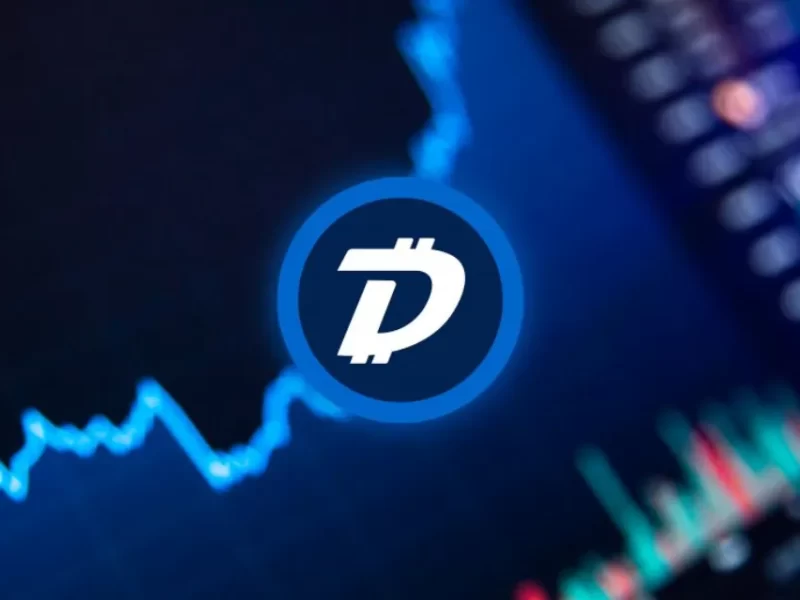The cryptocurrency market is a very active community that initiates thousands of transactions to be verified every day, but transaction verification can be quite laborious.
A digital hoard of cryptocurrency locked in a smart contract is referred to as a crypto liquidity pool. Liquidity pools can be compared to public cryptocurrency storage spaces that were crowdfunded.
You will learn about liquidity pools, their operation, and a number of other things in this article.
What is a Liquidity Pool?

A liquidity pool is a smart contract that has a significant amount of cryptocurrency, digital assets, tokens, or virtual coins locked up and prepared to provide crucial liquidity for decentralized trading networks.
Due to the regular rate at which transactions are made on their network, a decentralized exchange depends heavily on liquidity; as a result, decentralized exchanges need to be connected to liquidity pools that can help maintain a steady, functional network that doesn’t cause delays in trader transactions.
Digital assets are secured and available for trade in cryptocurrency liquidity pools. Liquidity pools act as a digital asset reserve that can supply liquidity to help speed up transactions for markets that use decentralized finance, such as decentralized exchanges (also known as DEX).
Liquidity pools don’t require users to be connected in order to complete a trade, in contrast to traditional finance, which connects buyers and sellers to complete a transaction. Instead, they run automatically thanks to automated market makers (amms), which connect you to the smart contract that has your requested digital assets secured in it.
Algorithmic protocols known as automated market makers are used to automate asset trades and set prices for digital assets on liquidity pools.
Users who participate in a liquidity pool are known as liquidity providers (also referred to as LPs), and they contribute to a portion of the crypto asset in a typical liquidity pool smart contract.
How Do Liquidity Pools Work?
Automated market makers (AMMs) are used by liquidity pools to connect users looking to trade pairs with the appropriate smart contracts. The protocols used to determine the cost of digital assets are known as AMMs, and they are excellent at providing the most frugally accurate market price on liquidity pools.
Liquidity pools will need the tokens of liquidity providers before they can fulfill their primary goal of supplying adequate liquidity for cryptocurrency markets around the world.
To become a liquidity provider, you can adapt the steps below to any liquidity pool platform of your choosing:
- You can either sign up on a liquidity pool platform and credit the liquidity pool wallet of your account on that platform, or you can credit your cryptocurrency wallet with the cryptocurrency tokens you want to lock up in a liquidity pool and connect it to the platform of your choice.
- To invest $1000 into an ETH and USDT trading pair, you would need to deposit $500 each in ETH and USDT on that liquidity pool. Find the trading pairs you’d like to invest in and deposit an equally divided portion of your crypto investment into that trading pair.
Choose the time frame for the pool’s lockup after making your deposit.

You, as a liquidity provider, will be compensated with liquidity pool tokens in accordance with your chosen trading pair and liquidity pool platform after the lockup period has passed.
However, you will also receive a portion of the transaction fees paid to exchange your cryptocurrency with the pool to which you committed it during the lockup period.
Some cryptocurrency liquidity pools also give users the choice to stake liquidity pool tokens in order to gain access to the platform’s native token.
Why Are Liquidity Pools Important?
For illiquid markets to have liquidity, liquidity pools are crucial, as they also help the DeFi ecosystem grow. Peer-to-peer exchanges’ limited liquidity capacity may cause financial markets’ transactional activity to move more slowly. Nevertheless, transactions can be made quickly thanks to liquidity pools, where tokens are secured by smart contracts.
On cryptocurrency liquidity pools, the cost of the assets is also very reasonable. They are only susceptible to changes in the current market exchange rate, which provides reasonably accurate prices for the assets they provide to intelligent contracts for liquidity pools. Liquidity pools offer a more consistent setting where prices can be more precisely determined, in contrast to traditional exchanges where buyers and sellers can affect the bidding price of their transactions with other traders.
Pros of Liquidity Pools
Faster Transactions
You can complete transactions more quickly and convert your tokens into cash more quickly when there is enough liquidity provided by liquidity pools.
Liquidity pools offer a quicker way to conduct transactions than P2P exchanges, which call for traders to release assets, confirm trades, and spend time making the necessary transfers to complete the exchanges.
The cryptocurrency pair you want to exchange is already available in liquidity pools, making exchanges faster and more reliable.
Secured Exchange With Reduced Possibility of Scam
In contrast to a P2P transaction, the method by which users of liquidity pools obtain their crypto pairs is more secure.
P2P transactions require two users to have mutual trust in order for them to fulfill their contractual obligations. Nevertheless, with liquidity pools, automated market makers (amms) instantly match users with contracts that contain their trading pairs.
Additionally, Amms releases any crypto that has been secured in smart contracts. With such a system, users conducting transactions on a cryptocurrency network can receive their assets right away without worrying that the other trader will withhold them.
Fair Price on Exchanges
Because traders set the trading price for their exchanges, prices offered for exchanges on liquidity pools are not subject to bias or greed, which can affect P2P exchanges.
For making exchanges on liquidity pools, Amms provides the market price. The prices Amms offers are based on reliable, authentic information.
Cons of Liquidity Pools

Scam Liquidity Pools
Developers may have access to the smart contract code of a liquidity pool. Developers with such access are able to violate the terms of the smart contract by illegally obtaining all of your assets that are locked in the liquidity pool.
Users of liquidity pools are therefore advised to thoroughly investigate the reliability of the liquidity pools they connect to their wallets and read the terms and conditions of the smart contract they participate in.
Risky Price Change
Assets locked up in their smart contracts are constantly changing because Automated Market Makers (AMMs) set prices on liquidity pools.
On the list of trading assets they provide on pools, Amms continuously updates the prices of the trading pairs.
Impermanent Loss
Liquidity pools’ changing prices can result in a sizable loss or gain for the assets kept there.
Due to the erratic nature of the cryptocurrency market, losing assets that have been locked up in a pool can result from a sharp drop in price.
Small asset portions can be easily affected by volatile changes, and lost assets may not be recoverable for investors who only lock up a small portion of their assets in a liquidity pool.
What Are Liquidity Pool Tokens?
You might be perplexed as to why anyone would choose to lock their cryptocurrency in a DEX’s liquidity pool. What advantages can LPs anticipate, besides supporting decentralized crypto trading?
For any token pair they contribute, LPs typically receive a portion of the overall trading fees on DEXs. Uniswap, for instance, consistently distributes a flat 0.3% trading fee to all LPs. The amount of token rewards you receive for each swap depends on how many tokens you add to a liquidity pool.
Depending on the DEX they are on, LPs may also receive bonus token rewards. Most DEXs have governance tokens incorporated into their reward system. These governance tokens give holders a vote on upgrades to a DEX that are being proposed, in addition to serving as bonus incentives. UNI from Uniswap, CAKE from PancakeSwap, and SUSHI from SushiSwap are a few well-known DEX-issued tokens.
How Have Liquidity Pools Revolutionized Finance?
A novel approach to supplying secure crypto liquidity in DeFi (decentralized finance) is provided by liquidity pools. The authority and influence of centralized market makers can be diminished by autonomous smart contracts, open-source software, and simple access for average investors. Crypto investors have access to liquidity pools for a quick, secure way to execute trades or deposit money in exchange for passive income.
Remember that Uniswap is still in the early stages of development even though the total value locked (TVL) in liquidity pools has increased since its launch in 2018. Still, CEXs like Binance provide much more liquidity for cryptocurrency traders.
Liquidity pools will, however, offer a new market-making model as the DeFi industry expands. Tokens other than those created by DeFi may also be traded. In the future, more DEXs might provide security tokens that represent precious metals, ETFs, and synthetic stocks. The adoption of liquidity pools and DEXs will increase, potentially reducing the power of centralized markets.
Are Liquidity Pools Safe?
In comparison to order books, liquidity pools offer a lot more security. For traders who hold onto their assets until they are certain of the other trader’s commitment, order books are safe. Liquidity pools, however, bypass the holding period and release users’ assets more quickly because the assets are already secured in smart contracts.
While a liquidity pool guarantees the security of your transactions, the security of your tokens within the liquidity pool depends on the amount of research you conduct before taking part in them.
Conclusion
The crypto market is extremely active and runs on a large number of cryptos. An innovation that builds networks is securing some cryptocurrency to conveniently give investors the resources they need.
Liquidity pools are one of the most amazing ways decentralized exchanges can maintain quick transactions on such unstable networks, given the regular rate at which crypto networks are being used. Investors looking to generate passive income will still have access to a reliable network through liquidity pools.
FAQs
Can You Lose Your Crypto in a Liquidity Pool?
Liquidity pools are prone to impermanent loss, a term for when the ratio of tokens in a liquidity pool (for example, 50:50 split of ETH/USDT) becomes uneven due to significant price changes. Your invested money could be lost as a result of that.
How Do Crypto Liquidity Pools Make Money?
The rewards in different liquidity pools vary. A trader can gain more LP tokens, trading commissions, and cryptocurrency assets by taking part in them. Liquidity mining is this trading strategy’s best practice. This is the point where a trader earns the most money from in-pool fees.
Are Crypto Liquidity Pools Safe?
When it comes to liquidity pools, smart contract risk is one of the biggest dangers. This is the danger of hackers taking advantage of the smart contract that controls the pool. If hackers are able to find a bug in the smart contract, they can theoretically drain the liquidity pool of all its assets.



